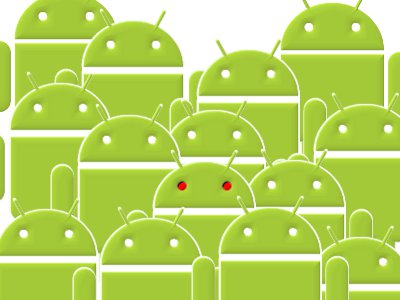Android to Dominate Smartphone Market by 2016
 YNOT – Smartphones powered by Google’s Android operating system will dominate the mobile landscape by 2016, with Apple’s iOS, Windows Mobile and BlackBerry OS lagging at an increasingly dramatic rate over the next five years, independent telecoms analyst Ovum predicted in a new forecast. Ovum is a division of Datamonitor.
YNOT – Smartphones powered by Google’s Android operating system will dominate the mobile landscape by 2016, with Apple’s iOS, Windows Mobile and BlackBerry OS lagging at an increasingly dramatic rate over the next five years, independent telecoms analyst Ovum predicted in a new forecast. Ovum is a division of Datamonitor.
By 2016, the smartphone market is expected to double to encompass 40 percent of the overall mobile market, hitting shipments of 653 million new phones annually. Android-based units are expected to lead Apple iPhones by a 20.5 percent market share, with 38 percent of the overall market.
“The smartphone market will see significant growth over the next five years, once again outperforming the wider mobile phone market,” Ovum principal analyst Adam Leach said. “We will see dramatic shifts in dominance for smartphone software platforms, with Android storming into the lead with 38 percent market share, compared to Apple iOS’ 17.5 percent, by 2016.”
He added Ovum expects Windows to account for a 17.2 percent market share and BlackBerry a 16.5 percent share during the same period. According to Leach, Android’s predicted success already is being driven by a growing number of hardware vendors and application developers at both the high and low ends of the price spectrum.
“We expect at least one other platform to achieve mainstream success within the forecast period,” Leach noted. “This could be an existing player in the market such as Bada, WebOS, or MeeGo, or it could be a new entrant to the marketplace.”
According to Leach, the partnership between Nokia and Microsoft has redrawn the smartphone market and will result in a significant reduction in shipments of Symbian-based handsets as Nokia transitions to Windows Mobile as its primary platform. However, he added, Nokia still expects to ship 150 million Symbian-based handsets into some regions into 2016.
“For Microsoft, the deal provides a committed handset partner that has the potential to make Windows Phone a mainstream smartphone platform,” he said. “The risk to Microsoft is that other handset makers may choose not to compete with Nokia and may turn their backs on Windows Phone.”
The Asia-Pacific region will retain its status as the largest consumer of smartphone technology, accounting for just over 200 million units by 2016, according to Ovum’s forecast. Western Europe and North America will remain strong markets, with 175 million and 165 million shipments, respectively.









